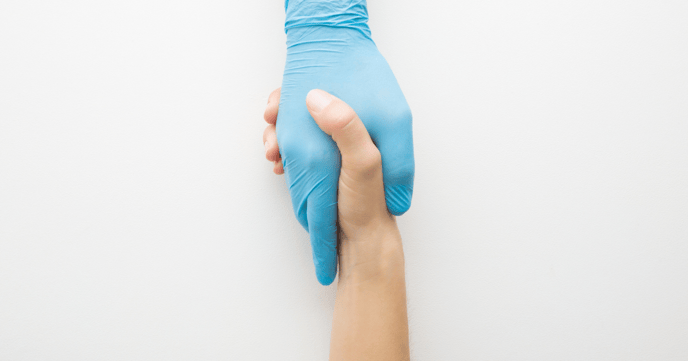There are ways to prepare that will reduce stress and increase your chance of getting the job. Learn More.

GIFTED has created a list of tips to help you ace your next interview for an allied health professional assignment. Read on and get ready to ace that upcoming interview!
Always Be Positive
Never use an interview as an opportunity to complain about past jobs, coworkers, or patients. Remaining positive will show your future employer that you are a team player that encounters problems with optimism and an open mind.
From beginning to end, no matter what, stay positive.
Prepare for Frequently Asked Questions
No matter what kind of healthcare job you’re interviewing for, there are several questions you’re likely to encounter. Studying these questions and preparing answers for them will make you seem confident and knowledgeable.
Practice answering these popular questions until they sound natural and conversational. If your responses seem mechanical, you may seem too calculated.
Here are some common interview questions for healthcare jobs:
- Why did you become an allied health professional? Why do you want this job?
- What is your favorite thing about being in the healthcare industry? What is the most difficult part?
- What tools have you developed to manage stress?
- How do you handle patients who are unhappy with their quality of care?
- If you witnessed a coworker violating facility policies/breaking the law, how would you handle it?
- Do you prefer to work alone, or as part of a team?
It is important to think about what each question is trying to accomplish.
General questions about your reasons for choosing your career, what you find difficult about the job, and your professional strengths are attempts to understand your style of care. Questions about specific scenarios are attempts to evaluate your sense of ethics and boundaries. Questions about your preferred clinical setting are attempts to understand your ability to adapt and collaborate.
Use Specific Examples
When answering questions about your experience, use specific examples to demonstrate your skills. Avoid general statements that do not offer any additional information.
For example, if you have strong communication skills, follow up your declaration with a specific instance in which you demonstrated this. According to Dalena Bradley, job interview coach, specific examples “help the interviewer visualize what you could do for their [facility].”
Dress for Success
Like it or not, first impressions are important. Whether your interview is in-person or over the phone, dressing the part is essential.
Make sure you are well-groomed on the day of the interview. Get a good night’s sleep (if possible) and wear an outfit that makes you feel confident. Even if the person conducting the interview can’t see you, your preparedness and confidence will be reflected in the conversation.
Be Courteous
Show up on time, be polite, and bring any necessary paperwork. Turn off your cell phone and make sure there is no chance of being interrupted.
Do whatever you can to show the interviewer that the job is your top priority.
Be Engaged & Ask Questions
Interviews are a two-way street. Allow the interviewer to guide the conversation but take time at the end to ask questions about the job.
In addition to learning whether or not the job is the right fit for you, asking questions will show the interviewer that you are detail-oriented. Healthcare Professionals need to be team players, so it’s in your interest to showcase your communication skills.
School Yourself
Are there any areas of your education that are getting rusty? Preparing for an interview is the perfect time to refresh your knowledge.
When in doubt, overprepare!
Become a GIFTED Allied Professional Today
GIFTED provides allied health professionals with exceptional career opportunities. Apply now to join the GIFTED Family today!
/Gifted%20Logo%20(White).png?height=120&name=Gifted%20Logo%20(White).png)